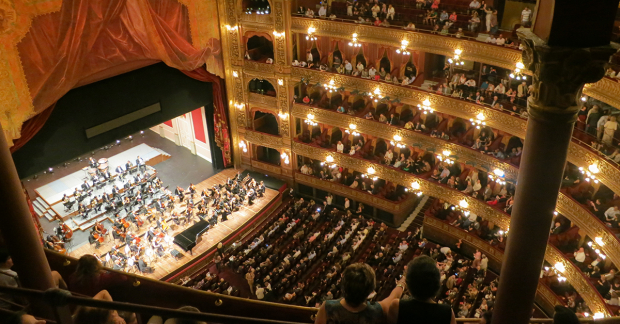English theatres to have capacity capped in tier one and two areas
Looks like festive shows and pantos may go ahead in some areas – though with capped capacities

A full fleet of new guidance and restrictions has been announced while a variety of English venues will hopefully be able to reopen in December, it has been revealed by the UK government.
Under new rules (which we have reported on in greater detail here), theatres in areas in "tier one" (medium risk) and "tier two" (high risk) locations will be able to reopen, though, as has now been confirmed, attendance will be capped at a maximum of 1000 attendees or 50 per cent of their usual capacity for indoor events, with higher ceilings for outdoor events.
Some West End venues have, with social distancing, managed to achieve capacities of around if not more than 50 per cent and may have to make some adjustments if they fall into either tier one or tier two categories. For example, if a 1074-seater venue was placed in a "tier one" or a "tier two" band, it would only be able to admit half of its 1074-person capacity from 2 December.
Questions still remain as to whether or not performers, ushers, front-of-house and backstage staff are classed as "attendees" (which would bring the number of spectators down further). An extra spanner for show organisers – the lockdown status will be reviewed every two weeks – so some areas may slip from tier two into tier three with little notice.
There will also be dismay in areas that have high rates of transmission and may expect to be placed in tier three (information about tiers is expected to arrive on Thursday), which will not be able to reopen from 2 December.
Julian Bird, chief executive of the Society of London Theatre and UK Theatre, said: "Today's announcement of new restrictions for performing arts venues in all tiers has shaken an already fragile sector. Closure of venues in tier three areas will mean cancellation of pantos and other shows, risking organisations' long-term survival and leaving theatre freelancers adrift with no compensation.
"The capacity constraints in tiers one and two will lead to financial problems for venues and disappointment for audiences. It is unclear why these have been instituted in a sector with no known spread of the virus. As ever, we remain committed to working with Government to secure the survival of our world-leading theatre sector."












